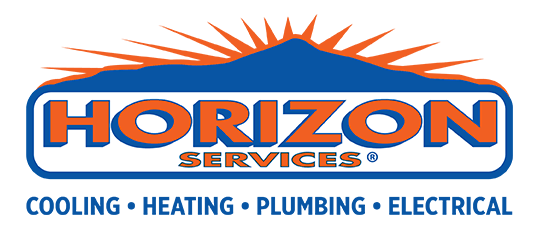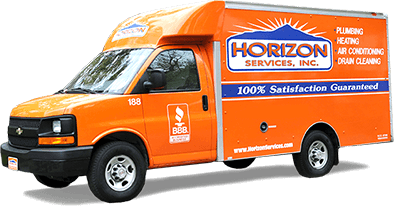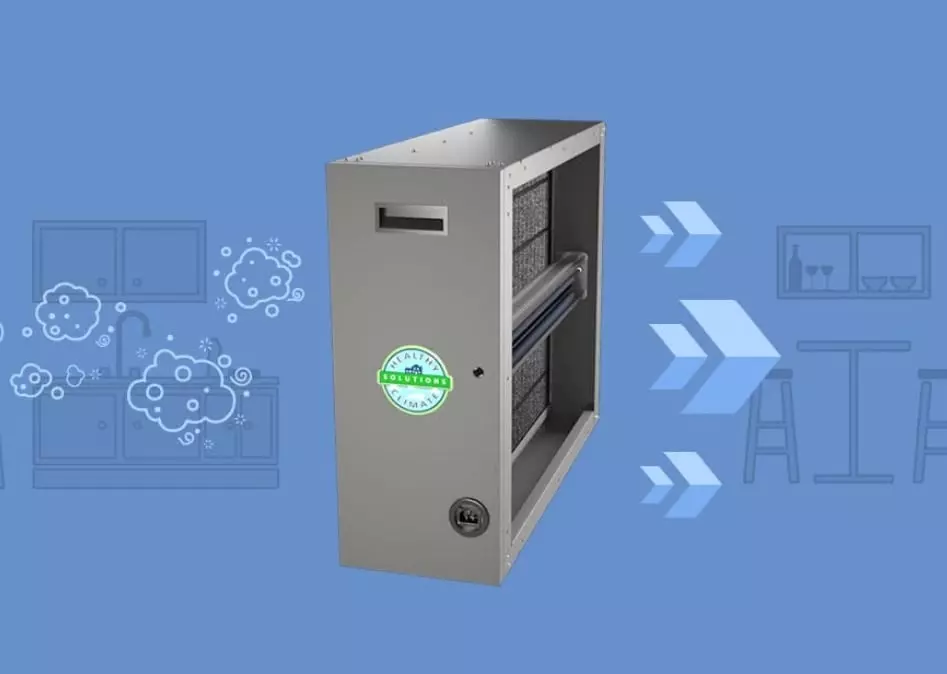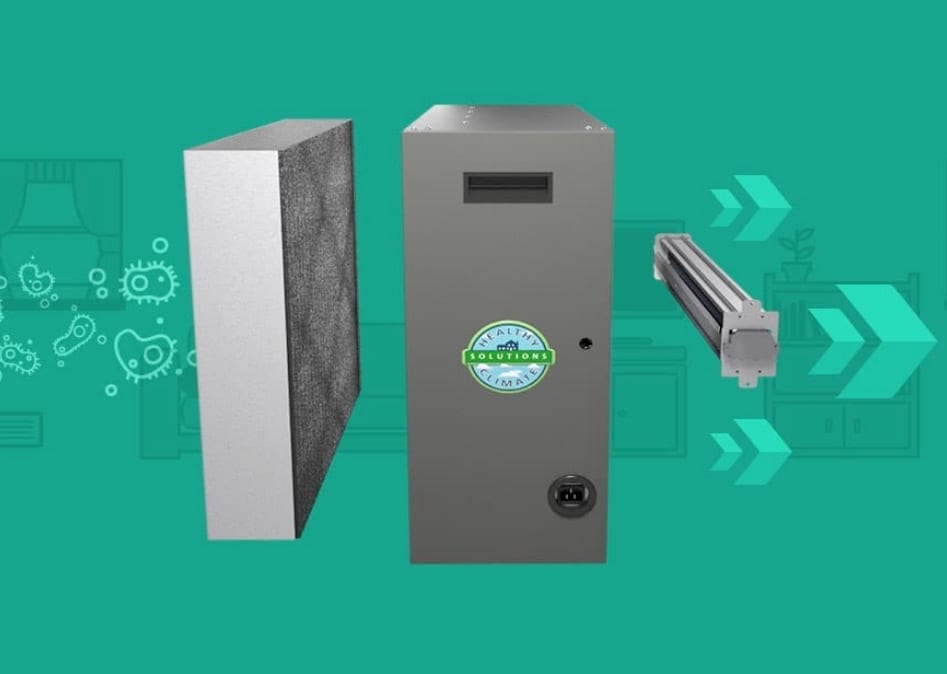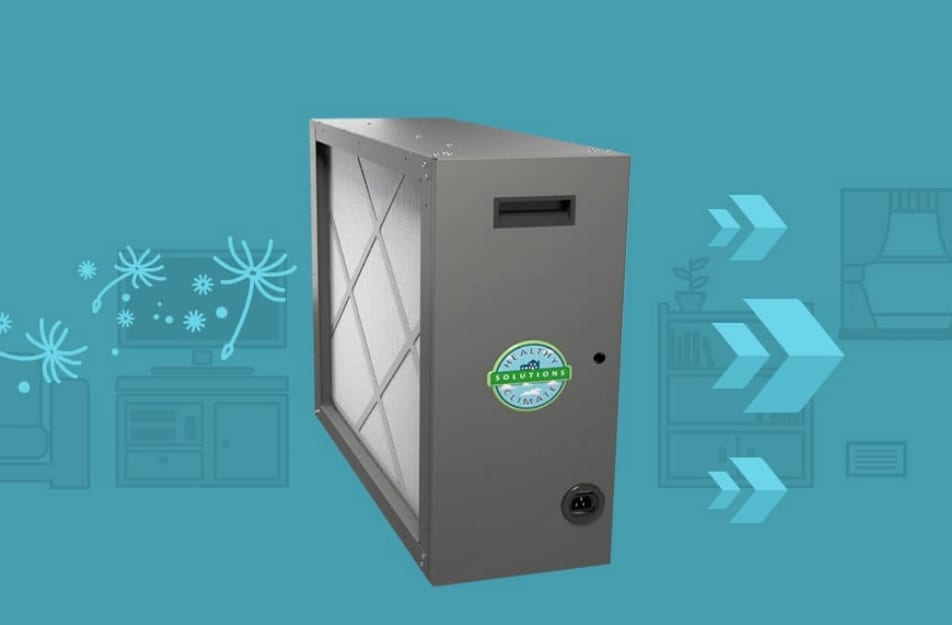
Find Answers to Your AC, Heating & Plumbing Questions!
Want to learn how you can increase the efficiency of your air conditioning system? Not sure if your home’s heating system can be repaired or if it requires complete replacement? Experiencing unexplained increases on your water bills and don’t know why? Horizon Services has the answers you need! Browse our frequently asked questions below and give us a call today to learn more about how our trusted team can help you with your air conditioning, heating, or plumbing problem!
Do heating and air conditioning systems really need regular maintenance?
The simple answer is yes. Regular maintenance services and tune-ups can extend the lifespan of your system, increase its working efficiency, and allow technicians the opportunity to catch and address minor issues before they become major problems. This ultimately saves you money in the long-run, not to mention time and stress. When it comes to maintaining your heating, ventilation, and air conditioning (HVAC) systems, making sure there is an unrestricted air flow is the most important.
How often do I need air conditioning and heating maintenance?
At Horizon Services, we recommend that you schedule tune-up services twice a year—once before the start of the summer months and once before winter begins. This can help you avoid unnecessary problems during the hottest and coldest months of the year.
How often should I have my filters replaced?
If you have disposable filters, we recommend that you replace them at least once a month. If you have washable filters, it’s best to have them cleaned once a month.
How can I tell if I need professional air conditioning and heating service?
Generally speaking, if your heating, air conditioning, or ventilation systems are not working properly, it’s wise to schedule service with a trained professional. How can you tell if your air conditioning and heating system isn’t working properly? Check for strange noises, unusual smells, reduced efficiency, higher energy bills, or other unexplained issues with your home’s systems.
What size air conditioning and heating system should I have?
Selecting the right size heating, ventilation, or air conditioning system is important as it can improve your home’s energy efficiency, reduce costs for homeowners, and ensure that your home stays comfortable all year-round. There is no one-size-fits-all rule for choosing the right size air conditioning and heating system; instead, a trained technician can look at various factors, including the size and construction of your home, and use this information to determine what size air conditioning and heating system you should have. At Horizon Services, we provide free in-home energy analysis services to help you select the right system for your unique needs.
How can I increase my home’s heating and air conditioning efficiency?
The best way to increase the energy efficiency of your home is to select an efficient air conditioning and heating system. When it comes to heating and air conditioning, bigger doesn’t always mean better. In fact, larger systems with more capacity can actually lead to reduced efficiency as they tend to cycle more rapidly, turning on and off frequently while in use. Choosing the right size air conditioning and heating system for your home can improve its overall efficiency and cleaning and replacing filters frequently can also lead to improved functioning of your system. Keeping the blower in the “on” position can also help your system heat and cool your home more efficiently as this allows for better filtration and constant air movement throughout your home. Finally, installing shades, shutters, heavy drapes, and/or screens on your windows can help keep rooms at moderate temperatures
What are the benefits of a programmable thermostat?
Programmable thermostats are usually electric, making them more efficient and accurate than their traditional, mercury-based counterparts. Programmable thermostats can also allow you the ability to automatically set the ideal temperature for different seasons or times of the day (we recommend 75 -80 degrees in summer, 68 -72 in winter) without having to constantly adjust the thermostat.
Are heat pumps a good choice for homeowners in the Mid-Atlantic States?
Generally speaking, heat pumps are an excellent choice for homeowners in our area, including Delaware, Pennsylvania, New Jersey, and Maryland. A heat pump works as both an air conditioner and heater, providing year-round comfort in one simple system. During the heating months, heat pumps produce a steady stream of warm air (usually about 80 degrees) which may feel warm, rather than hot, to your hand. This is perfectly normal. Additionally, if you hear “whooshing” noises emitting from your heat pump, it is likely that the system is simply defrosting its outdoor coil. This is also normal and temporary—heating should resume once any accumulated ice is gone.
What causes heat pumps to freeze up?
There are several factors that can cause your home’s heat pump to freeze. If you’re currently using the system to cool your house, check for restrictions in air flow and thaw the system out as necessary by turning off the air conditioning function and turning on the fan. You can also run the system in heat mode to melt ice that may have formed. If you are still experiencing problems after trying these troubleshooting methods, give the technicians at Horizon Services a call. We can quickly and correctly diagnose the problem and get to work resolving the issue.
When should I replace my air conditioning or heating system?
Many factors play a part in determining if you should have your AC or heating system replaced, including how often it is used, the system’s overall efficiency, whether or not the system is meeting your personal comfort needs, and if repairs would be more costly than a full system replacement. Lifespans for AC and heating systems vary but, generally speaking, most air conditioners last 12 years, as do most furnaces, and boilers last anywhere from 15 – 20 years.
How important is indoor air quality?
Most homeowners don’t think about the indoor air quality of their home, but it is actually very important to the overall comfort and health of you and your family members. When it comes to indoor air quality, it’s important to keep in mind the following factors: ventilation, purification, humidity, and filtration. Our Horizon technicians can help you assess your home’s indoor air quality and select the right purification or filtration system, or humidifier/dehumidifier for your home.
How can I tell if my toilet is leaking and should I be worried?
If you hear any unexplained noises from your toilet when it is not in use, it’s likely that you have a leak. There are a few ways you can determine if your toilet is leaking. First, check the rubber flapper in the toilet to make sure that it is not corroded or otherwise damaged. Next, make sure that the water level in the toilet tank is not overflowing via the overflow pipe. Finally, you can check for leaks by adding a few drops of food coloring into the tank of the toilet and observing whether or not the water in the bowl changes color. Whatever the case, a leaking toilet is a cause for concern as it not only wastes water, it can also cost you hundreds of dollars throughout the year. Whether you simply need to have a part replaced or you need extensive repairs, it’s always best to trust a professional plumber.
How can I avoid toilet clogs?
Never flush anything down the toilet that shouldn’t be flushed, including baby wipes, paper towels, or feminine products. If a foreign item falls into the toilet, such as a toy or hairbrush, do not flush it. Furthermore, try to avoid using excess toilet paper as this can lead to clogs.
What causes dripping faucets?
Dripping faucets are usually caused by wear and tear to the rubber or composition washers within the faucet that close onto a metal washer seat. Typically, when faucets begin to leak, it means that it’s time to have the internal mechanisms, including washers, replaced or repaired.
Why does water come up out of the shower drain when I flush the toilet?
If you experience unexplained drain backups, such as water coming out of the shower drain or bathroom sink after the toilet is flushed, it’s likely that there is a problem within the main sewer line. Unusual clogs such as these are usually symptoms of a larger issue and should be addressed by a professional as soon as possible to avoid further damage.
What can I put down my garbage disposal?
Broken or clogged garbage disposals are often caused by misuse of the machine. Never put any non-biodegradable items down the garbage disposal, including glass, metal, or plastic. Most soft, biodegradable materials are acceptable, as are some hard, biodegradable materials such as eggshells, ice, and small chicken bones. Avoid putting hard-to-break-down food items through the disposal, such as corn husks, asparagus, or celery stalks and always run cold water when using the disposal as this can reduce the amount of fats and oils that are allowed to congeal within the pipes.
How can I tell if there is a problem with my water heater?
If you are experiencing a lack of hot water, not enough hot water, unusual noises or smells from the water heater, or you see obvious signs of a leak, it is probably time to have a professional take a look at your water heater. At Horizon Services, we can assist you with water heater repairs, replacements, and new system installations. Our technicians can help you select the right size and type of water heater for your home.
What are the common signs of a hidden water leak?
Hidden leaks are very serious problems. If left unattended, even a relatively small leak can cause extensive damage to your property. It’s important to have any hidden water leaks quickly identified and fixed to avoid further damage and expensive repairs. If you suspect you may have a hidden leak, look for these signs: unexplained increases on your water bills, damp or “swampy” areas of your yard, the sound of running water when water is not in use, mold or mildew growth, obvious water damage on walls or ceilings, or soggy spots in carpet or flooring.

